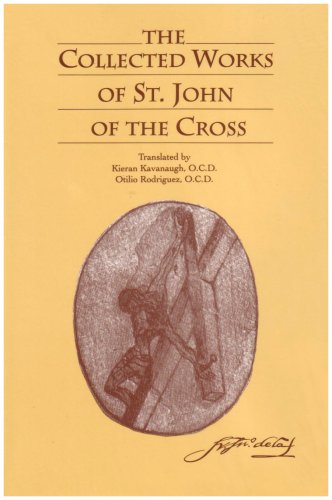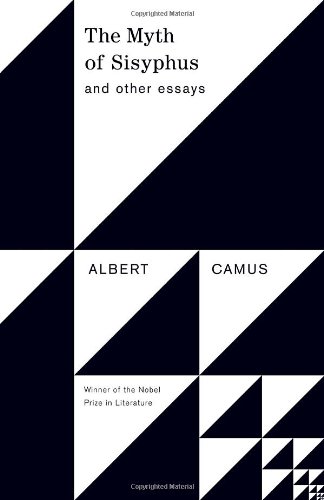Alright, following the St. John series, I'd like to post two talks about Centering Prayer, one from Cynthia Bourgeault and one from David Frenette. In The Dark Night, St. John talks about a stage of spiritual development in which the soul must be exclusively passive. He calls this moving from meditation (i.e. the use of discursive excercises including images, words, and "form") to contempletion, or "infused contemplation." Thomas Keating sometimes talks about Centering Prayer as a way to prepare oneself for the gift of contemplation. This is one way to understand Centering Prayer, but, as seen below, different authors have different ways of understading the practice.
This is Cynthia Bourgeault giving a series of talks about "The Heart of Centering Prayer" (the title of her latest book) at Boston College School of Theology. In Part 1, she tells the story of the beginning of the Centering Prayer movement (0:30), talks about her own experience of the prayer (9:30), and explains her primary paradigm – what she calls "developing non-dual consciousness" – for understanding what is happening during Centering Prayer (18:00). Bourgeault is the first author to interpret Centering Prayer through this lens. These are new ideas, and she adds a new set of vocabulary, to the movement.
In Part 2, Cynthia discusses The Cloud of Unknowing, and its relation to Centering Prayer, in detail.
Part 3 consists of discussions of apophatic vs. cataphatic practice (2:30), and the active vs. contemplative life (23:00) as seen in The Cloud of Unknowing.
In Part 4, Cynthia talks briefly about the Divine Therapy and then does a Q & A.
When I first read Cynthia Bourgeault's new book, The Heart of Centering Prayer, I thought she was distancing herself from the Christian tradition. The way in which she speaks of Centering Prayer as a means of forming non-dual consciousness seemed to me to relativize the role of God, however you want to describe that term. It seemed to me that, by emphasizing simply the practice of releasing thoughts, and how this discipline can affect our "operating system," she was turning Centering Prayer into an almost secular practice.
After watching these lectures I think otherwise. There are still pieces of her book that give me pause. For instance, in the following quote she talks about "God being the sideshow":
"I was several years into the practice of Centering Prayer before I came to appreciate the cumulative effect of this patterning. Like most beginners, I thought that the aim in Centering Prayer was to let go of my thoughts so that God could 'fill' me with his presence. One day I suddenly realized that the God story was the sideshow and the letting go was the main event. That was when the practice flipped for me, as I recognized that thoughts were not the obstacle; they were the raw material, as every opportunity to practice releasing that focal point for attention deepened the reservoir of 'free attention' within me and strengthened the signal of the homing beacon of my heart."
– Cynthia Bourgeault, The Heart of Centering Prayer
These statements seem to me to edge the practice away from being "God-centered." And I do think that her book tends towards the esoteric. But the way she carefully describes objectless awareness (a meditative state associated with Centering Prayer) as a place where "Divine awareness and our own awareness co-mingle as one diffuse field of inter-abiding" (Part 1 41:40) makes me think that she is still faithful to The Cloud of Unknowing and rooted in the Christian contemplative tradition.
Overall, I think Bourgeault is brilliant, but re-framing the practice in terms of non-dual consciousness seems obscure and confusing. Take, for instance, how she defines the term in her book:
"Imagine that there might be a different way of structuring the field of perception, an alternative way of wiring the brain that did not depend on that initial bifurcation of the perceptual field into inside and outside, subject and object. Instead, one would grasp the entire pattern as a whole – holographically – through a perceptual modality quantitatively more immediate and sensate, working on vibrational resonance rather than mental abstraction. Then one would indeed experience that signature sense of oneness – not, however, because one had broken into a whole new realm of spiritual experience, but because that tedious, 'translator' mechanism of the self-reflective brain has finally been superseded. You see oneness because you see from oneness."
I feel like she is essentially describing what a Buddhist would call the experience of "no-self" which can be achieved through vipassana meditation. On top of this, I feel like this is a slightly different state than what she elsewhere describes as "attention of the heart":
"Perhaps the subtlest fruit of the practice is a gradually deepening capacity to abide in the state of 'attention of the heart,' as it's known in the Christianity of the East. You might describe this as a stable state of mindfulness or 'witnessing presence,' but emanating from the heart, not the head, and thus free of intrusion from that heavy-handed mental 'inner observer' who seems to separate us from the immediacy of our lives. The essence of this kind of attentiveness is perhaps best summed up in those words from the Song of Songs: 'I sleep, but my heart is awake.' Once you get the hang of it, attention of the heart allows you to be fully present to God, but at the same time fully present to the situation at hand, giving and taking from the spontaneity of your own authentic, surrendered presence."
This, it seems to me, is equivalent not to "no-self" but to what a Zen Buddhist would call "Neither man nor circumstances are deprived."
Oh boy, this is quite confusing.
This is why I prefer to simply think of Centering Prayer as opening yourself completely to the presence and action of God. Transformation will happen in that process, and the way, or categories through which, you see that transformation may change over time.
When we start talking about how consciousness is changed when off the mat, maybe we can just let what happens happen.

















